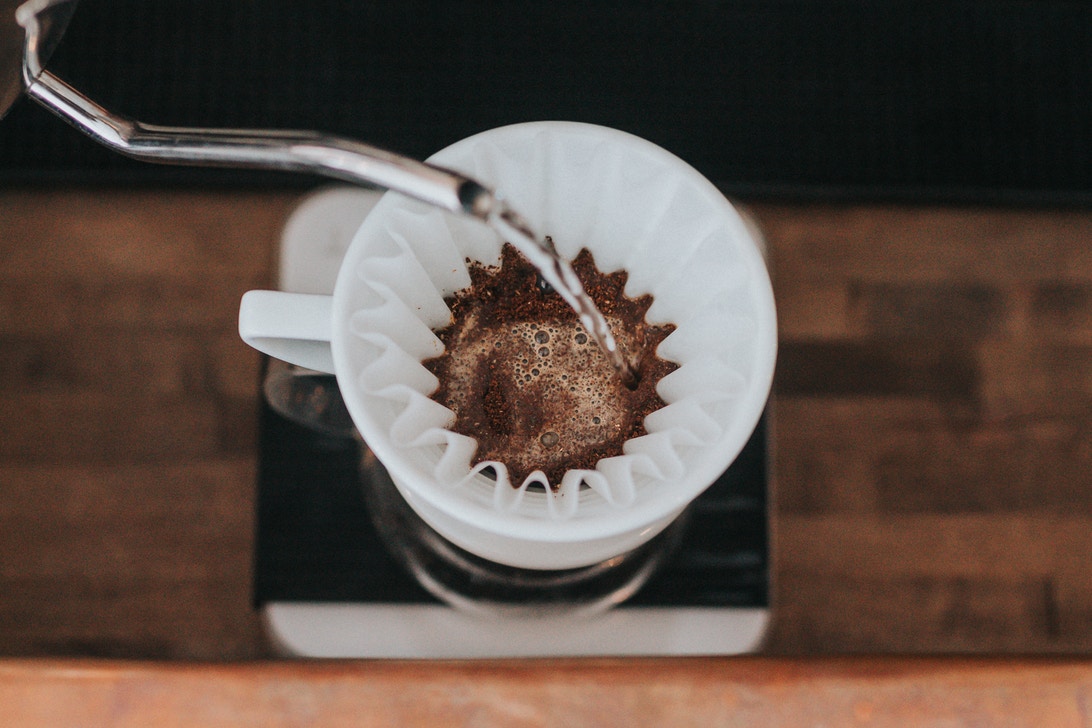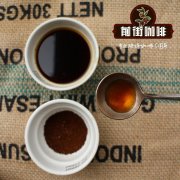What is the definition of stability of steamed rice? How to make coffee by hand is stable?

Professional coffee knowledge exchange more coffee bean information please follow the coffee workshop (Wechat official account cafe_style)
"if a man sits with a beautiful woman for an hour, he will feel as if only a minute has passed, but if he is allowed to sit on a hot stove for a minute, he will feel as if more than an hour has passed. This is the theory of relativity. "
~ Einstein
This article is similar to the article "preliminary Exploration of the freshness of Coffee beans". The main purpose is to explain the nouns based on the simple conclusion accumulated by my personal experience and ideas. The process of each person's accumulated experience is different, and the logical way of thinking is also different. The content of this article may be different from your conclusion. If there is any doubt, please give priority to your own experience, because I don't want to change your mind. I just say my own things.
Then let me come to the conclusion.
To put it simply, people's ability to evaluate coffee flavor is different, which will affect their definition of cooking stability. As far as coffee cooking is concerned, stability is not absolute, but relative.
When we talk about "stability", the basis will be "can every stew fall above a certain standard?" "and" if there is a gap, is the scope of the error acceptable? When it comes to spicy, the statistical term is roughly talking about the concepts of "average" and "standard deviation".
Just as we use the number "Gross National Income,GNI", conceptually, the sum of a country's economic activities is converted back to each national, and the per capita income of each national will be to evaluate the overall economic performance and living standards of a country.
Apply a similar concept and average the results of each cooking (although there are no specific values). It will generally determine your degree as a "beginner", "player of some degree", "semi-professional master", "professional expert", "competitor" or "coach or mentor". There seems to be no particularly clear standard for such a classification, and to put it bluntly, it is only a modular division, and in fact it can be disassembled into a more detailed system, but it is of no special significance to discuss it here.
The statistical definition of standard deviation is to indicate the degree of dispersion of a group of values. In this article, the degree of dispersion refers to the gap between the result of each cooking and the flavor you set to perform.
For example, for beginners who are just beginning to practice, the results of each cup of coffee may be very different, at this stage, because the degree of dispersion is too large, stability basically has no special significance; but for some players or semi-professional experts, each cooking will get more consistent results, but also represents that the degree of dispersion has been a certain degree of closure. For "professional players" or "contestants", the smaller the dispersion of cooking results, the better, because this is the lifeblood of their livelihood.
As for why the degree of dispersion gradually fades away, on the one hand, it is because you are more familiar with the equipment, and on the other hand, because you have further mastered the skills of coffee brewing, coupled with enough practice, it is only natural that the degree of dispersion will gradually decline.
With the concept of mean and standard deviation, you can almost draw my concept of "cooking stability" into a trend diagram similar to "Bollinger Bands,BBands". Each cooking result will be a K bar, with a sufficient number of K bars, the three lines of the Bollinger channel will run out. With the average and standard deviation, you will have the possibility of so-called "stability".
For another example, compared with commodity futures, stocks are stable, but from the perspective of futures traders, making money in the stock market is like turtle speed, but for investors, futures players often gamble with their wealth. I don't know what I'm impulsive about. Compared with stocks, bonds are stable. People who play with stocks are hunting in the eyes of buying bonds, and they don't know when they will be treated as prey. From the perspective of stocks, the people who buy bonds are farmers farming. I don't know when to harvest.
This is the difference caused by different standards.
Compared with the excitement when you see Takeshi Kaneshiro, you are stable when you see your husband (but not necessarily, in some cases, seeing your husband will be more excited than seeing Takeshi Kaneshiro). It's like when you work overtime until 10 p.m., when you open the door and see Takeshi Kaneshiro sitting on the sofa, your first thought is to rub your eyes to make sure the person is real, and then you're ready to scream. But when you open the door and see your husband showing a Coach Potato on the sofa, your husband will probably scream in the next second.
This is the difference caused by different objects.
So you can better understand what I'm trying to say? Whether it is stable or not is relative, it depends on what standard and yardstick you measure.
To sum up, subjectively, what level of coffee you brew falls on average each time, which determines your degree. For people of different levels, the allowable error value (or degree of dispersion) is different. Your own stability will be based on this result. From another point of view, there will be another view on the character evaluation ability of drinking your coffee, the scope of allowing mistakes, and whether your cooking is stable or not.
"stewed stability" is such a relative concept. I don't think there will be two cups of coffee that taste exactly the same in this world. There must be a difference in flavor between this cup and that cup of coffee. It's just that such subtle differences in human senses and technology can't be found, so what's left is what you call stability, how stable it is.
The "stability of cooking" mentioned in all my articles refers to whether you can steadily fall within the proper range every time you cook, and whether there is a gap between your own expectations, the expectations of the guests, or the expectations of the judges. It doesn't necessarily mean that the coffee tastes exactly the same, it would be too hard for yourself to think like that.
END
Important Notice :
前街咖啡 FrontStreet Coffee has moved to new addredd:
FrontStreet Coffee Address: 315,Donghua East Road,GuangZhou
Tel:020 38364473
- Prev

The principle of coffee roaster the most commonly used coffee roaster
Professional coffee knowledge exchange more coffee bean information Please pay attention to the coffee workshop (Wechat official account cafe_style) the type of coffee roaster coffee beans will only be roasted before sale, because the condition of raw beans is more stable than cooked beans, and the best taste period for roasted cooked beans is within one month. There are many ways to bake beans, and there are two most commonly used coffee dryers: drum / roll
- Next

Why do most beans for espresso use mixed beans, the benefits of mixed beans?
Professional coffee knowledge exchange more coffee bean information Please pay attention to coffee workshop (Wechat official account cafe_style) coffee bean blending is a knowledge, to be familiar with the flavor and taste of various coffee beans, plus their own understanding, baking preparation, if the landlord just try, you can mix at will, not fastidious, just like painting, painting cats and dogs are different, but such as
Related
- Beginners will see the "Coffee pull flower" guide!
- What is the difference between ice blog purified milk and ordinary milk coffee?
- Why is the Philippines the largest producer of crops in Liberia?
- For coffee extraction, should the fine powder be retained?
- How does extracted espresso fill pressed powder? How much strength does it take to press the powder?
- How to make jasmine cold extract coffee? Is the jasmine + latte good?
- Will this little toy really make the coffee taste better? How does Lily Drip affect coffee extraction?
- Will the action of slapping the filter cup also affect coffee extraction?
- What's the difference between powder-to-water ratio and powder-to-liquid ratio?
- What is the Ethiopian local species? What does it have to do with Heirloom native species?

